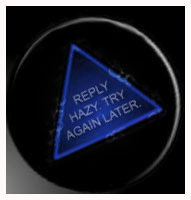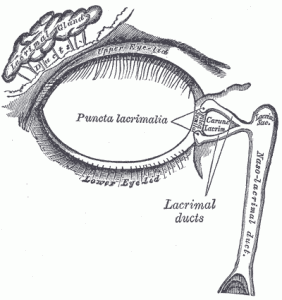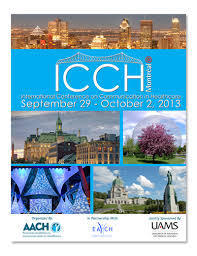Zackary Sholem Berger's Blog, page 18
October 15, 2013
It’s very short
October 14, 2013
Inconvenient disagreement
As an advocate of patient-centered care, I have to recognize that some varieties of patient-centrism make me more comfortable than others. If I really want the patient to do X, and the patient doesn’t want to, I generally feel okay about that. Frustrated, sure, and often times convinced that my way is the right way and the patient’s way is some sort of detour. Most often, though, I am able to put aside those feelings and encourage the patient to make their own decision. I am a less-is-more kind of guy, after all. Plus, encouraging the patient’s decision making can leave behind the pleasing glow of low-grade self-righteousness.
But sometimes things go the other way. You have garden-variety back pain, I tell Ms. X, without any alarm signs that might indicate infection or cancer. Yet she still wants the scan. Or say you come to me and want to check your “basic labs,” to make sure “everything is okay with your blood.”
Neither of these is necessary. MRIs for garden-variety back pain, as we have discussed before in this space, can lead to real harm, as can blood tests for no good reason. And this, the asking for things that I don’t think have a point, is very difficult for me to deal with. I think this because it goes against the grain of my personality (I would rather do less, and avoid iatrogenic harm, than do more and cause it) and such requests reinforce a real, justified expectation that we all have when we go the doctor: we should leave with something, even if it is just a prescription slip. It’s as if the X-ray order or the antibiotic we leave the doctor’s office with is an objective correlative for the care they are supposed to give us.
When the patient asks for something that might harm them without discernible use to me, I try to explain my views – and then people, being who they are, sometimes want to make that same decision. Which leaves me with a range of unpalatable options. I can say no; I can say yes; or I can temporize. Saying no makes me feel good and dissatisfies the patient. Often, if the contraindicated care is provided by a broad range of providers anyway (e.g., antibiotics for viral upper respiratory infections), my refusal does no good. If I say yes I have implicated myself in the patient’s potential self-harm.
Part of a solution – apart from me biting the bullet and saying no more often – is to change expectation, so that leaving the visit “with something in hand” can be not just a script, or a procedure, but a plan of action or a symptom diary to be filled out. Until then, disagreement will still get my hackles up, especially if the patient wants something I don’t.
October 9, 2013
“Am I a hypochondriac?”
There’s one question I get asked a lot:
“I research my health problems on the Internet. Am I a hypochondriac?”
First, we should ban that word when talking about ourselves. No one wants to be called that, and doctors who use that word are committing malpractice. Everyone has some range of complaints and worries in life, often physical and mental together, and this is our job as doctors: to hear them out. I firmly belief that no complaint is illegitimate.
Nor, for that matter, is looking stuff up on the Internet a problem. Given that the advice proferred by doctors is most often not consonant with the scientific evidence (to quote this much-cited paper, “Even those physicians who are most enthusiastic about EBM rely more on traditional information sources than EBM-related sources “), I doubt that seeking information on the Internet is any worse. (Of course, there is already a considerable literature on the topic.) Nor do I know of evidence that seeking health information on the Internet increases worry, another common concern mentioned to me.
I think the relationship between physical symptoms and worry actually go in another direction, at least as I see it. A subset of those who have common physical complaints sometimes have a lot of them, and with some frequency these are due to undiagnosed anxiety disorders or other psychiatric ailments – which often go untreated.
In short: physical complaints are never to be dismissed, no matter what their cause, and having recourse to publicly available information is not to be looked down on either.
October 8, 2013
Dismissing preferences?
Cross-posted to the book blog.
At the International Conference on Communication in Healthcare, which I just returned from, there was a discussion continuously coursing beneath the surface and bubbling up every once in a while. If we – acolytes of shared decision making, whether patients or providers – want to encourage decision making that has the person involved at the center, recognizing their preferences and values, does the kind of decision in question have anything to do with the relevance of those preferences? Is it really the case that (as was said multiple times during the conference) there is “no such thing” as preference-sensitive decisions, for the reason that all decisions are sensitive to preferences? Everything – it was said in this argument – involves preferences, and countless decisions are made in the course of a day. Getting into the car to go to the doctor’s office is a decision. Taking a pill, or not, is a decision. Picking up the phone to talk to someone about your symptoms: that’s a decision too. So, the argument goes, to pick certain health care decisions as more “preference sensitive” than others is meaningless. Everything involves an exercise of wants, desires, and priorities.
I think this ignores the diverse uses of the term “decision” and the verb “decide.” Surely not all of the following are the same?
I decided to take an aspirin to reduce my chance of heart disease.
I decided to go to the doctor.
I decided to take a deep breath.
I decided to perform CPR on this bystander in the street.
I decided to forgo resuscitation if my heart should stop.
I decided to quit smoking.
It must be that these involve various shadings of the word decision, a different mix of voluntary, quasi-voluntary, outwardly imposed, and preference-sensitive action. If we are to further care that is consonant with peoples’ preferences, we should recognize that sometimes these preference are at the fore in a given decision (“I decided to walk 2 miles every week!”) and sometimes not (“I decided to take time off work to take care of my mother”). There are differences that should be recognized, and eliding them runs the risk of dismissing when preferences might actually be most important.
October 7, 2013
Rx
September 30, 2013
Bonjour Montreal!
I am here till Wednesday at the International Conference on Communication in Healthcare, so please say hello, view my poster, and check out my book at the conference registration table, if you are also an attendee. Otherwise, there are two chances for us to connect (in person or over audio):
1. Reading tomorrow, October 1, at 7pm, at Argo Bookshop. (You can RSVP on Facebook.)
2. A radio chat on the Tommy Schnurmacher Show, CJAD 800AM and live streaming on-line, Wednesday, October 2, at 11:30am. Click Listen Live.
September 25, 2013
Doctor-Patient Communication on a Hospitalist Service: Types of Conflict
I’m very curious to hear what everyone thinks about this poster to be presented at the International Conference on Communication in Healthcare, September 29 to October 2, Montreal.
Doctor-Patient Communication on a Hospitalist Service: Types of Conflict
The hospital as a respite from the community in 1813 and 2013: compare and contrast
In the early nineteenth century, there was little demand for the services of general hospitals in America. Almost no one who had a choice sought hospital care. Hospitals were regarded with dread, and rightly so. They were dangerous places; when sick, people were safer at home. The few who became patients went into hospitals because of special circumstances, which generally had to do with isolation of one kind or another from the networks of familial assistance. They might be seamen in a strange port, travelers, homeless paupers, or the solitary aged — those who, traveling or destitute, were unlucky enough to fall sick without family, friends, or servants to care for them. Isolation was also related, but, in a converse fashion, to the kindred institutions of pesthouse and asylum. There, isolation (or respite) from the community was the intent rather than the occasion of removal to an institution.
–Paul Starr, The Social Transformation of American Medicine. Basic Books: 1982. p. 72. (The situation in 2013 is left as an exercise for the reader.)
(The situation in 2013 is left as an exercise for the reader.)
Patient portals: does can mean should?
Check out a post of mine on KevinMD.com, with a lively comment thread. It includes this question:
How do we make sure that the patients who are actually using the EMR reflect the entire population?
My favorite comment so far:
Techie: If we can do it , we should do it.
Doctor: If we should do it, we should do it.
Patient: Did someone do something?
September 18, 2013
Changing medicines
Cross-posted to the book blog.
A comment by a friend got me thinking. She mentioned that the constantly changing guidelines occasionally make her skeptical of medical advice.
It is true that guidelines change. By the same token, though, all knowledge changes. There are different ways to model the function of knowledge change. Are we asymptotically approaching truth? Does each generation of scientists invest in a new explanatory model, which is then discarded some time down the line in favor of another – a new paradigm, not necessarily closer to the truth? Or are scientists continually confronting new problems, with different narratives, so we’re not so much finding new answers as dealing with new questions?
All these possibilities apply to medicine. Guidelines for, say, the optimal control of blood pressure don’t change simply because we have a better idea of what the perfect blood pressure is. We have a different array of blood pressure treatments than we did just a few years ago; we have a different understanding of the relationship between systolic and diastolic blood pressure; we think a lot more about patient preferences than we did 10 or 20 years ago.
Where does this leave us? I hope not with widespread disillusionment that medicine, after all, does not inexorably march towards truth and health. Like any other empirical caravan, we trundle along for a while, get lost, find a new byway, and discover that we weren’t lost at all, and now we are in an even better place than we thought possible. Or we discover that the folks with us are not merely passengers along for the ride, but they know how to drive as well as we can.
When you hear about changing health care, you might be worried about a loss of stability. I would say that understanding the world requires constant change, in a world of flux.





